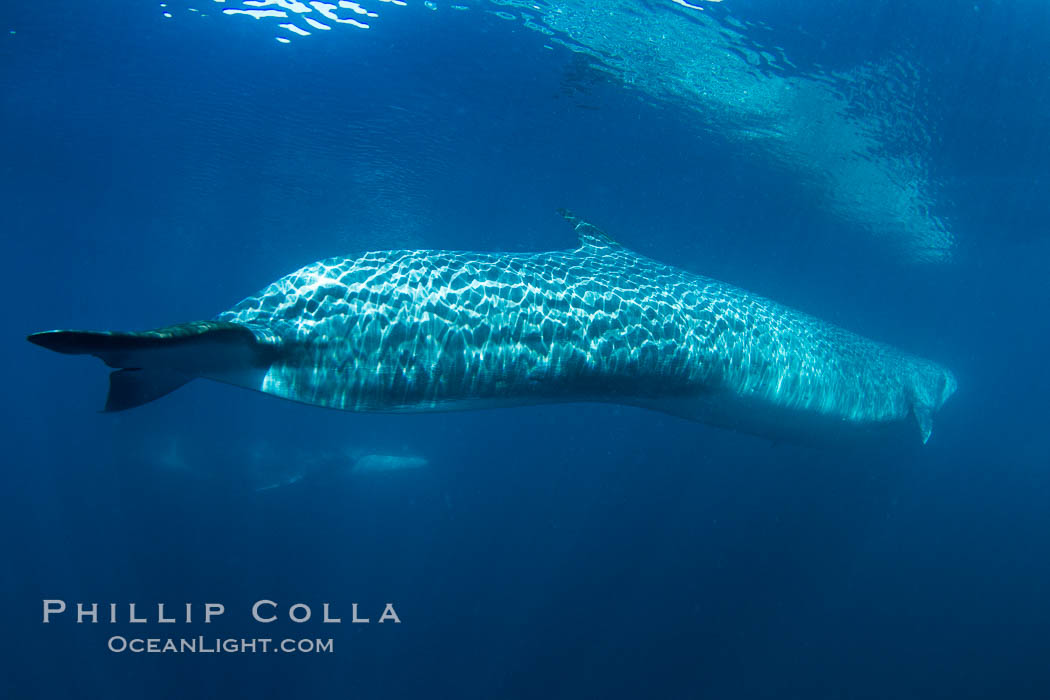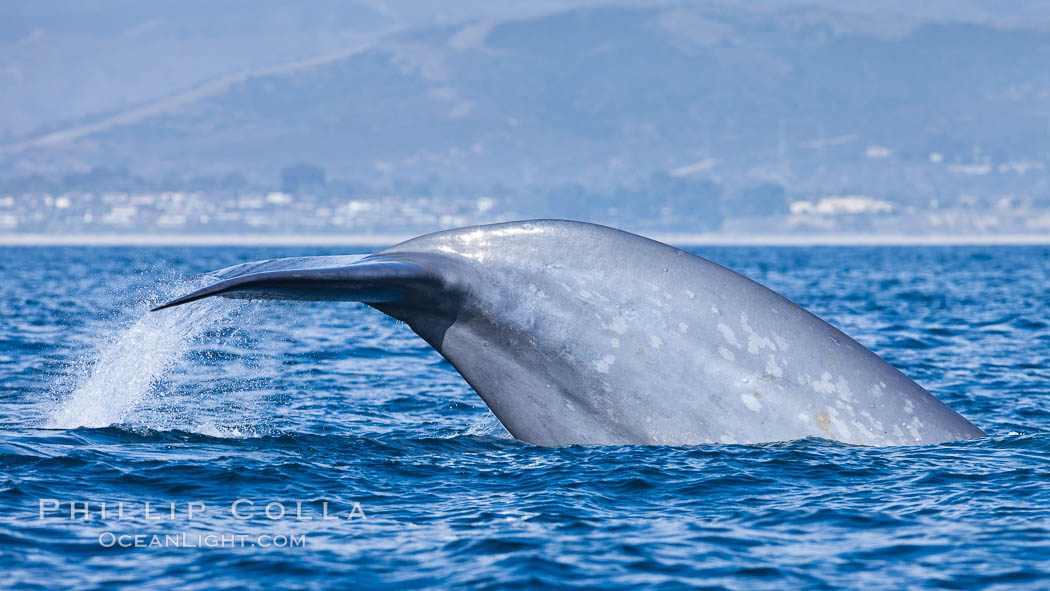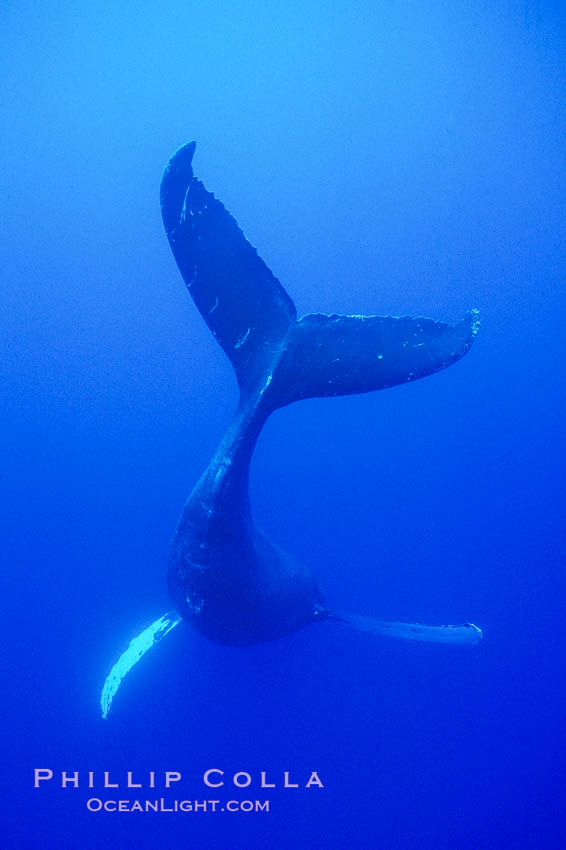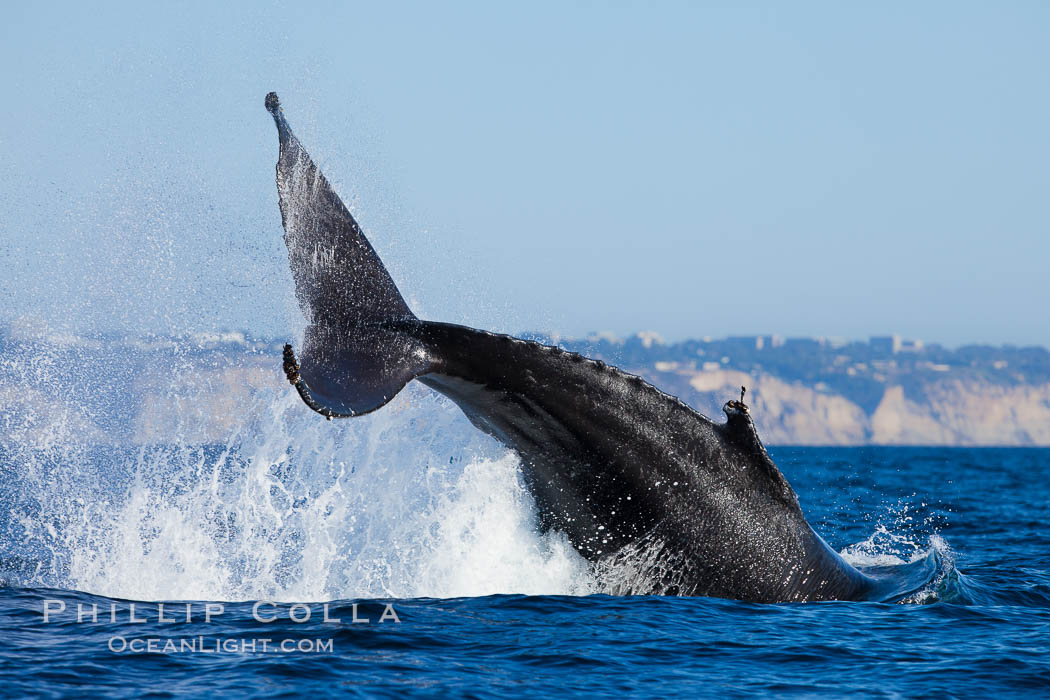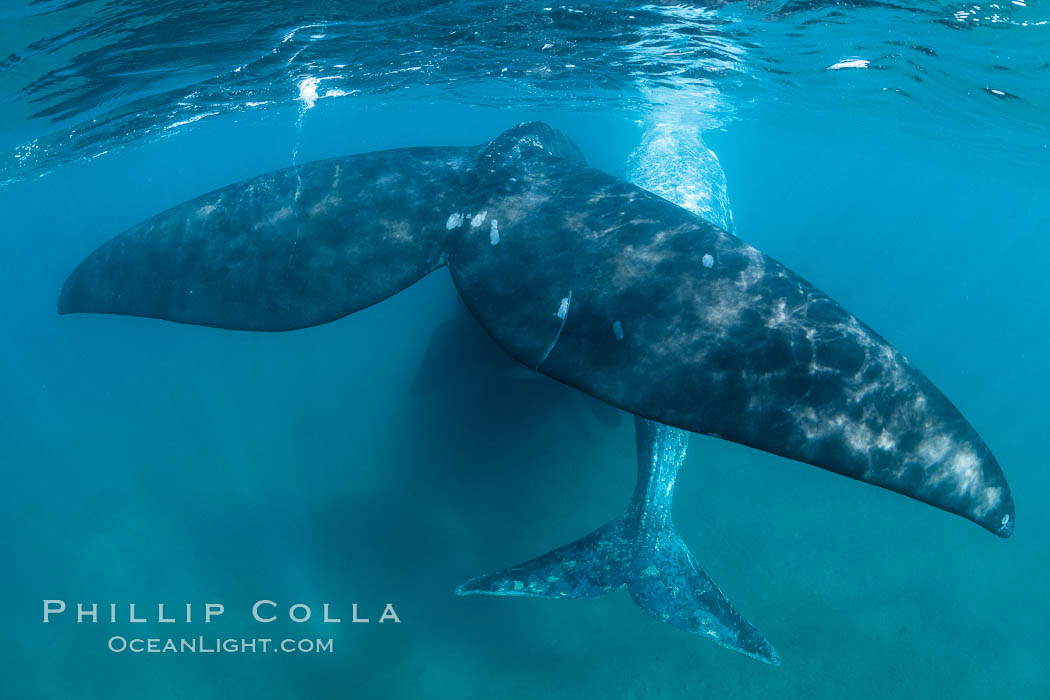You think you’ve got horsepower in your Lamborghini? You got nothing compared to what Mother Nature has conjured in the great whales. Having evolved to roam the open ocean their entire lives, sometimes at considerable speed, the great whales have the most impressive drive train in the animal kingdom, capable of producing up to 120 kilo-Newtons of power, or roughly double the thrust of an F-15 fighter jet. In particular, the musculature of the peduncle stem, which connects the fluke of the whale to the rest of its body, is the most powerful set of muscles ever devised and for a blue whale accounts for about one-third of the whale’s mass. Consider that a single adult blue is about as massive as an entire herd of African elephants and you begin to get an idea of how huge these muscles are. Here are a few images that portray the drive train of a whale, courtesy of several cooperative fin, humpback, blue and southern right whales. Cheers and thanks for looking!
Fin whale underwater. The fin whale is the second longest and sixth most massive animal ever, reaching lengths of 88 feet.
Image ID: 27597
Species: Fin whale, Balaenoptera physalus
Blue whale, raising fluke prior to diving for food, fluking up, lifting tail as it swims in the open ocean foraging for food.
Image ID: 27341
Species: Blue whale, Balaenoptera musculus
Location: Dana Point, California, USA
Adult male humpback whale singing, suspended motionless underwater. Only male humpbacks have been observed singing. All humpbacks in the North Pacific sing the same whale song each year, and the song changes slightly from one year to the next.
Image ID: 02794
Species: Humpback whale, Megaptera novaeangliae
Location: Maui, Hawaii, USA
A humpback whale raises it fluke out of the water, the coast of Del Mar and La Jolla is visible in the distance.
Image ID: 27142
Species: Humpback whale, Megaptera novaeangliae
Location: Del Mar, California, USA
Southern right whale mother and calf, flukes, Eubalaena australis, Argentina
Image ID: 35924
Species: Southern Right Whale, Eubalaena australis
Location: Puerto Piramides, Chubut, Argentina
